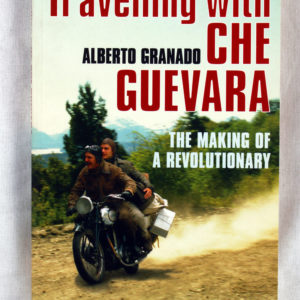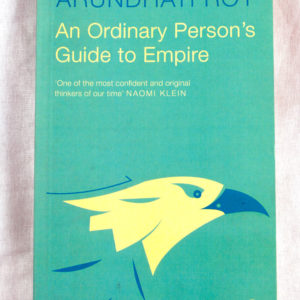The Art of War
₨ 318.00
The Art of War is a book which should be used to gain advantage of opponents in the boardroom and battlefield alike.
- Categories: History, Non-Fiction
- Tags: left books, Sun Tzu, the art of war
Twenty-Five Hundred years ago, Sun Tzu wrote this classic book of military strategy based on Chinese warfare and military thought. Since that time, all levels of military have used the teaching on Sun Tzu to warfare and civilization have adapted these teachings for use in politics, business and everyday life. The Art of War is a book which should be used to gain advantage of opponents in the boardroom and battlefield alike.
Related products
In 1952 Alberto Granado, a young doctor, and his friend Ernesto Guevara, a 23- year- old medical student from a distinguished Buenos Aires family decided to explore their continent. They set off from Cordoba in Argentina on a 1949 Norton 500cc motorbike and travelled through Chile, Peru, Colombia and Venezuela. They worked as casual labourers along the way, as football coaches, medical assistants, and haulage hands. The poverty and exploitation of the native population changed them for ever. Each man later wrote an account of the journey. Alberto Granado realised later in his life that what they saw and encountered on their journey represented a crucial turning point. It strengthened Alberto’s determination to forge his career as a scientist. And it started the process that was to turn Ernesto- the debonair, fun- loving student- into Che, the man who fought for the liberation of Cuba and became the heroic and glamorous warrior fighting for freedom and social justice, who remains to this day in people’s minds Latin America’s foremost hero and one of the world’s great revolutionaries. A companion to Che’s Motorcycle Diaries, Alberto Granado’s book is a moving and at times hilarious account of how two carefree young men found their true purpose in life.
Translated from the Hindi by Madhu Singh With a foreword by Angela Y. Davis
September 1970. Ramchandra Singh enters the Hardoi District Jail in Uttar Pradesh as a naxalite undertrial. Barely twenty, his life of expanding prospects—in studies, politics and love—is reduced to the horizon of a life term. The odds are stacked against the survival of his humanity and imagination, but Singh regenerates his gifts of empathy, humour, reflection and, above all, language—in a secret diary smuggled out with the help of friends.
A singular record of recent history and of individual witness, Singh’s prison diary, newly expanded, appears in English for the first time. Offering unprecedented intimacy with the everyday life of the imprisoned everyman, Singh challenges us to look without flinching and question our assumptions about crime and punishment.
Ramchandra Singh (1949–2018), of Bangarmau village in Unnao district of Uttar Pradesh, was a member of the Communist Party of India (Marxist–Leninist) Red Star, and served on its Central Committee. He was part of the editorial board of Red Star Monthly (Hindi). He passed away when this book was in press.
Madhu Singh is a professor in the Department of English and Modern European Languages, University of Lucknow. She has previously translated the scholar G.N. Devy’s work, A Nomad Called Thief, into Hindi as Ghumantu Hain Chor Nahin.
When India detonated a thermonuclear device in May 1998, Arundhati Roy wrote The End of Imagination . Since then she has written with clarity, precision and insight about a range of subjects of the utmost importance. This second volume of her collected writing brings together fourteen essays written between June 2002 and November 2004. In these essays she draws the thread of empire through seemingly unconnected arenas, uncovering the links between America s War on Terror, the growing threat of corporate power, the response of nation states to resistance movements, the role of NGOs, caste and communal politics in India, and the perverse machinery of an increasingly corporatized mass media. Meticulously researched and carefully argued, The Ordinary Person s Guide to Empire is a necessary work for our times.
with an Introduction,‘The Doctor and the Saint’ by Arundhati Roy
Annihilation of Caste ‘posseses a generic openness to the wounds and decisions of existence which can breach the prisons of the world as no amount of scholarship can’—Biblio
Read a comprehensive interview with Arundhati Roy in Outlook, where she says, ‘Caste is at the heart of the rot in our society. Quite apart from what it has done to the subordinated castes, it has corroded the moral core of the privileged castes. We need to take Ambedkar seriously.’







Reviews
There are no reviews yet.